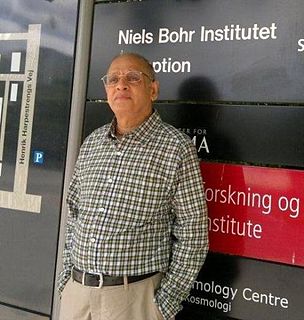A Quote by Jacob Bronowski
Science has nothing to be ashamed of even in the ruins of Nagasaki. The shame is theirs who appeal to other values than the human imaginative values which science has evolved.
Related Quotes
The values of science and the values of democracy are concordant, in many cases indistinguishable. Science and democracy began - in their civilized incarnations - in the same time and place, Greece in the seventh and sixth centuries B.C. . . . Science thrives on, indeed requires, the free exchange of ideas; its values are antithetical to secrecy. Science holds to no special vantage points or privileged positions. Both science and democracy encourage unconventional opinions and vigorous debate. Both demand adequate reason, coherent argument, rigorous standards of evidence and honesty.
No science of any kind can be divorced from ethical considerations... Science is a human learning process which arises in certain subcultures in human society and not in others, and a subculture as we seen is a group of people defined by acceptance of certain common values, that is, an ethic which permits extensive communication between them.
Any high school boy or girl knows how to calculate the force with which a stone he or she throws will hit someone in the face, but nothing in those equations they use will tell them whether or not to throw it...To solve the problem of values we must know what is valuable. Consciousness is the most valuable commodity...To bring values into science, we need to connect science with what is valuable consciousness.
Wherefrom are human values to be derived and how are they to be developed? Human values are born along with human birth. They exist in union. Unfortunately, man today separates himself from human values and yet wants to live as a human being. To recover human values, man has to take the spiritual path.
We are living in a society that is totally dependent on science and high technology, and yet most of us are effectively alienated and excluded from its workings, from the values of science, the methods of science, and the language of science. A good place to start would be for as many of us as possible to begin to understand the decision-making and the basis for those decisions, and to act independently and not be manipulated into thinking one thing or another, but to learn how to think. That's what science does.
The new way of thinking, spawned by the cognitive revolution, shows strong promise. Reversing previous doctrine in science, the new paradigm affirms that the world we live in is driven not solely by mindless physical forces but, more crucially, by subjective human values. Human values become the underlying key to world change.
It's a common perception that science and religion are mutually exclusive. But there are many scientists who would consider themselves to be spiritual people. Not only that, but in the case of climate change - a scientific issue with strong moral implications and difficult decisions to be made - it's essential to connect the science to our values. And for many of us, our values come from our faith.
When two men of science disagree, they do not invoke the secular arm; they wait for further evidence to decide the issue, because, as men of science, they know that neither is infallible. But when two theologians differ, since there is no criteria to which either can appeal, there is nothing for it but mutual hatred and an open or covert appeal to force.
Science and vision are not opposites or even at odds. They need each other. I sometimes hear other startup folks say something along the lines of: 'If entrepreneurship was a science, then anyone could do it.' I'd like to point out that even science is a science, and still very few people can do it, let alone do it well.
Thus science strips off, one after the other, the more or less gross materialisations by which we endeavour to form an objective image of the soul, till men of science, speculating, in their non-scientific intervals, like other men on what science may possibly lead to, have prophesied that we shall soon have to confess that the soul is nothing else than a function of certain complex material systems.



































